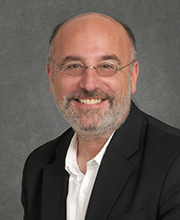Keynote Speaker
Bertha Madras, PhD 
Dr. Madras, a psychobiologist in the Division of Alcohol and Drug Abuse, Division of Basic Neuroscience at McLean Hospital, is Director of the Laboratory of Addiction Neurobiology there. She is also a Professor of
Psychobiology at Harvard Medical School, based at McLean Hospital and cross-appointed at the Massachusetts General Hospital.
Her research focuses on neurobiology, imaging and medications development (19 US and 27 international patents) for neuropsychiatric disorders. In public policy, she was Deputy Director for Demand Reduction in
the White House Office of National Drug Control Policy, a presidential appointment confirmed unanimously by the U.S. Senate. Dr. Madras recently served as a panelist at the Vatican Pontifical Academy of Sciences and in 2017, was appointed as one of six members of the Presidents’ Commission on Combating Drug Addiction and the Opioid Crisis. In service to the public, she developed a museum exhibit, a CD (licensed by Disney) with the Museum of Science, Boston. She is a recipient of an NIH MERIT award, a NIDA Public Service Award, and others.
Dr. Madras received her doctorate in tryptophan and hallucinogen pharmacology at McGill University and received an honorary MA at Harvard. She completed a post-doctoral fellowship in biochemistry (tumor biology) at Tufts University, and a post-doctoral fellowship in biochemistry at Massachusetts Institute of Technology. She has co-authored several books, including Cell Biology of Addiction, The Effects of Drug Abuse on the Human Nervous System, and Imaging of the Human Brain in Health and Disease. She has also published widely in academic journals such as Journal of Pharmacology and Experimental Therapeutics, JAMA Psychiatry, Annals of the NY Academy of Sciences, and Molecular Psychiatry.
Other Speakers
T.J. Gan, MD, MBA, MHS, FRCA 
Dr. Gan is Professor and Chairman of the Department of Anesthesiology at Stony Brook University School of Medicine. Previously, Dr. Gan was Professor of Anesthesiology, Vice Chairman for Clinical Research and Faculty Development at Duke University.
His research focuses on acute pain management, opioid burden to the patients and its cost implications to the hospital and society. He studies patients' decisions in the trade-off between analgesia and opioid-related adverse effects, as well as opioid adjuncts to enhance analgesia and minimize opioid use in the perioperative settings.
Dr. Gan received his medical training at London Hospital Medical College of University of London. He attained licensure in acupuncture at British College of Acupuncture and a master’s degree in clinical research as well as an MBA at Duke University. Dr. Gan is a diplomate of the American Board of Anesthesiology and is a fellow of the American Society of Anesthesiologists (FASA), Royal College of Anaesthetists of England (FRCA) and College of Anesthetists in Ireland. He has been the recipient of the Society for Ambulatory Anesthesia Young Investigator Award and the International Anesthesia Research Society Clinical Scholar Research Award. He serves as the Ambulatory Anesthesia and Perioperative Medicine Executive Section Editor of Anesthesia and Analgesia and is on the Editorial Board of Perioperative Medicine.
Dr. Gan is the Founding President of the American Society for Enhanced Recovery (ASER), a Past President of the Society for Ambulatory Anesthesia (SAMBA) and International Society for Anesthetic Pharmacology (ISAP). He is also a Council Member of the Association of Academic Anesthesiology Chairs (AAAC). He has published over 230 manuscripts in peer-reviewed journals and numerous books and books chapters. Dr. Gan has served as an invited speaker for many national and international professional conferences and as principal investigator or co-investigator for over 100 clinical trials, focusing on enhanced recovery, postoperative nausea and vomiting as well as pain, fluid and hemodynamic management and anesthetic pharmacology.
Diana Garretto, MD 
Dr. Garretto is a Clinical Assistant Professor of Obstetrics and Gynecology at Stony Brook University School of Medicine and is double board-certified in obstetrics and gynecology, and the sub-specialty of maternal-fetal medicine.
She is currently involved in many research projects, including an ongoing project investigating the demographics and neonatal abstinence syndrome in pregnant women with active opioid abuse as compared to women on opioid maintenance therapy (OMT). Dr. Garretto, with the maternal fetal medicine division, is developing a randomized control trial evaluating buprenorphine vs. buprenorphine/naloxone in pregnancy. She also continues to be involved with women on OMT and active opioid abuse as part of her daily practice. She has published and presented at various regional and national meetings on this topic and on multiple other topics including vitamin D deficiency and pregnancy outcomes, obesity in pregnancy, bariatric surgery in pregnancy, and clinical obstetrics.
Dr. Garretto earned her medical degree at Drexel University College of Medicine and completed her residency in obstetrics and gynecology at Stony Brook University School of Medicine. She completed her fellowship in maternal-fetal medicine, at Einstein College of Medicine — Montefiore Medical Center.
She is a member of the American College of Obstetrics and Gynecology and the Society for Maternal Fetal Medicine and most recently was awarded the Association of Professors of Gynecology and Obstetrics’ Medical StudentTeaching Award.
George S. Leibowitz, PhD, LICSW 
Dr. Leibowitz is a clinical social worker and expert on opioid addiction. He is a Professor at Stony Brook University School of Social Welfare and serves as cluster leader for Stony Brook University on a Patient-Centered Outcomes Research Institute grant investigating the integration of evidence-supported behavioral health and primary care services.
His research interests include trauma and victimization among child welfare and juvenile justice involved youth; addictions and public health issues in the criminal justice system, assessment and treatment with
sexually abusive youth, and global mental health. Dr. Leibowitz was recently awarded a $1.8 million Health Resources and Services Administration grant, a collaboration between the Stony Brook University Health Sciences Schools of Social Welfare and Nursing to deliver behavioral health screening, brief intervention, and referral to underserved populations within Suffolk County.
Dr. Leibowitz earned his master’s and doctorate degrees in social work at University of Denver. He is a member of the National Association of Rural Mental Health (NARMH). He has published articles in several journals, include Trauma and Dissociation, Criminal Justice and Behavior, and the Journal of Forensic Nursing, and co-authored the 2nd edition of the textbook Forensic Social Work: Psychosocial and Legal Issues Across Diverse Populations and Settings.
Richard Rosenthal, MA, MD 
Dr. Rosenthal is a Professor of Psychiatry at Stony Brook University School of Medicine and Inaugural Director of Addiction Psychiatry at Stony Brook Medicine. Over his career, he has been active in research, education, program development, treatment and public policy related to addiction. Since 2003, he has been the Head of Public Policy at the American Academy of Addiction Psychiatry. As such, his planning of this year’s Meeting of the Minds Symposium offers the important opportunity for both Stony Brook faculty and our community members to share cutting-edge research and clinical advancements that can advance our understanding of and responses to the opioid problem.
Dr. Rosenthal’s research has focused on evaluating and treating patients who are mentally ill with co-occurring addictive disorders and developing novel treatments for substance use disorders, and he has a special interest in medical informatics and the more direct uses of technology in identifying and treating substance use and other mental disorders. Active in clinical trials, he led the pivotal study for the Food and Drug Administration approval of buprenorphine implants for opioid use disorder (Rosenthal et al. JAMA 2016;316:282-290).
Dr. Rosenthal earned his master’s degree in physiology and pharmacology at Duke University, where he was the recipient of the National Institutes of Health Neurosciences Training Grant Award. He then earned his medical degree at State University of New York, Downstate Medical Center and completed his residency in psychiatry at Mount Sinai Hospital, where he served as Chief Resident. After residency, he founded and
directed the Addiction Psychiatry program at Beth Israel Medical Center, creating one of the first Accreditation Council for Graduate Medical Education-approved addiction psychiatry fellowships in the United States.
He is a member of numerous professional societies and served as President of both the American Academy of Addiction Psychiatry and the American Association for Technology in Psychiatry. He is a Distinguished Life Fellow of the American Psychiatric Association, and a Fellow of the New York Academy of Medicine. He has published articles in journals such as JAMA, Addiction, Frontiers in Public Health and Journal of Clinical Psychopharmacology, as well as numerous book chapters and books. He is an Editor of the American Society of Addiction Medicine Principles of Addiction Medicine, 6th Edition. In 2008, Dr. Rosenthal was the recipient of The Founder’s Award from the American Academy of Addiction Psychiatry and he has been selected for Castle Connolly America’s Top Doctors™ since 2008.
Mary Saltz, MD 
Dr. Saltz is Chief Clinical Integration Officer, Stony Brook Medicine, Clinical Assistant Professor of Radiology, Stony Brook University School of Medicine, and Chief Medical Information Officer, Stony Brook Cancer Center. She is board certified in both diagnostic radiology and clinical informatics. In her role at Stony Brook, Dr. Saltz and her interdisciplinary team integrate various data sources to paint a complex and nuanced picture of the communities served on Long Island — the people, their health needs, problems, challenges and opportunities. By working with hospital data, census data and Statewide Planning and Research Cooperative System (SPARCS) data, much can be learned about health, wellness and sickness affecting one’s region. Her team’s current research focuses on integrating data sources to identify and understand the clusters of opioid use on Long Island and how Stony Brook can target its resources to help specific needs of differing populations.
Dr. Saltz earned her medical degree at Duke University Medical Center. She completed her residency in pathology at Brigham and Women’s Hospital. This was followed by a residency in diagnostic radiology at Boston University School of Medicine, where she served as Chief Resident in Radiology.She completed her fellowship in interventional abdominal radiology at Massachusetts General Hospital.
She has published in several journals, including American Medical Informatics Association (AMIA) Annual Symposium Proceedings and Applied Radiology, and is a frequent speaker at the AMIA Joint Summits.
Lisa Benz Scott, PhD 
Dr. Benz Scott is a Professor in the School of Health Technology and Management, and Associate Dean for Health Sciences at Stony Brook University. She is the Director of the Program in Public Health, which is the academic home of the Master of Public Health (MPH) and a PhD program in Population Health and Clinical Outcomes Research. She oversees a team of interdisciplinary clinical and social/behavioral scientists dedicated to improving the public’s health through research, teaching and community engagement.
Her primary area of research is focused on gender and race/ethnicity disparities for access and use of outpatient cardiac rehabilitation services. However, she recently started a new area of inquiry that relates to the topic of mental health and opioid use in communities. She is currently leading a multi-institution study of how public library systems are responding to the health and social/behavioral needs of populations.
Dr. Benz Scott earned her doctorate in social and behavioral science at Johns Hopkins School of Hygiene and Public Health. Her career in community-based participatory research began during her post-doctoral studies at Johns Hopkins Bloomberg School of Public Health, including a post-doctoral fellowship as a W.K. Kellogg Community Health Scholar. She has also trained at Harvard School of Public Health on topics, including health risk communication, case study methods and leadership. Dr. Benz Scott is interested in identifying targets for intervention in community settings that could improve access to mental health support services where people are in need and with the engagement of trained lay educators (such as librarians). She is a member of the Alpha Eta Honor Society, earned the SUNY Chancellors Award for Service in 2012 and has published in several journals including JAMA Internal Medicine, Journal of Cardiopulmonary Rehabilitation and Prevention.
David T. Hsu, PhD 
Dr. Hsu is Assistant Professor of Psychiatry and Psychology at Stony Brook University School of Medicine and Stony Brook University College of Arts and Sciences. His research focuses on how the social environment contributes to the development of psychiatric
disorders. He has found that the brain’s natural opioids are released during social rejection, potentially helping one to cope with the pain of social rejection; however, those who were clinically depressed had a reduced opioid response. These findings suggest that in some individuals, opioid use may reflect an effort to cope with feelings of rejection and loneliness.
Dr. Hsu earned his doctorate in psychology at the University of Wisconsin-Madison, and completed postdoctoral training at Washington University in St. Louis and University of Michigan. His work on social rejection has been funded by a K01 and R01 from the National Institute of Mental Health, and a pilot grant from the Brain and Behavior Research Foundation.
Scott J. Moeller, PhD 
Dr. Moeller is an Assistant Professor of Psychiatry at Stony Brook University School of Medicine. His research, currently funded by the National Institute on Drug Abuse, uses behavioral and neuroimaging (including MRI and PET) approaches to investigate cognitive and emotional impairments in human drug addiction. One of his main interests is in studying compromised self-awareness of addiction severity and cognition (insight), where individuals addicted to drugs (including opioids) do not sufficiently perceive the extent of their impairments and need for treatment.
Dr. Moeller earned his doctorate in psychology at University of Michigan. He completed his postdoctoral training in addiction neuroimaging at Brookhaven National Laboratory and Icahn School of Medicine at Mount Sinai. He has published more than 50 papers in peer-reviewed journals. He was also elected as an Associate Member of the American College of Neuropsychopharmacology, and currently sits on the editorial boards of the peer-reviewed journals, Experimental and Clinical Psychopharmacology and American Journal of Drug and Alcohol Abuse.
